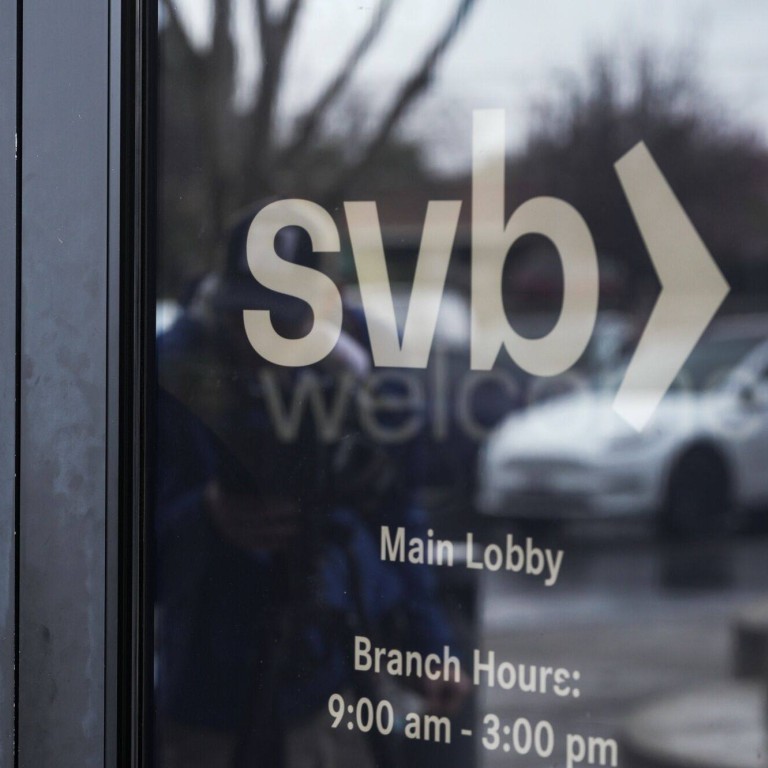
Silicon Valley Bank’s collapse likely to boost Chinese stocks by tempering US interest rate rises, brokerage says
- After initial knee-jerk reaction, China’s markets will stabilise as likelihood of jumbo rate increases by the Fed wanes, says Shenwan Hongyuan Group
- Hong Kong’s stocks may be more vulnerable to the fallout because of their higher exposure to foreign ownership, the brokerage warns
Rising borrowing costs unleashed bouts of sell-offs in US bonds, incurring investment losses that exacerbated the woes of SVB as it tried to contend with a run on deposits. Small US banks face similar risks amid fragile market sentiment, and this could prompt the Fed to slow the pace at which it raises interest rates to soothe the market, the report said.
“Easing expectations of further policy tightening by the Fed is definitely not a bad thing for China stocks,” Wang said in the report. “When overseas risk appetite and US stocks stabilise, foreign capital will flow back to A shares. China’s economic recovery will not be altered and what we might see is a strong economy in China and a weak one in the US.”
A shares refers to the yuan-denominated shares of Chinese companies listed in Shanghai and Shenzhen.
Some officials retained their posts in key government agencies including the central bank and the finance ministry, reassuring investors of policy continuity and stability.
The probability of a 25 basis-point interest-rate increase at the Fed’s meeting this month has shot up to 72.3 per cent from 31.7 per cent last week, while the chance of an increase of 50 basis points dropped to 27.7 per cent from 68.3 per cent, Shenwan said in the note, citing data from CME Group.
Futures contracts on the S&P 500 index jumped by as much as 1.9 per cent on Monday, signalling US stocks will probably halt a two-day decline, after Washington said it will take action including a new lending programme to protect all depositors.
Hong Kong’s stocks may be more vulnerable to the fallout from the SVB collapse. Foreign holdings account for about 40 per cent of the market, and an outsize gain from an October low spurred by China’s reopening has already pushed valuations to a reasonable level, according to Wang.
The Hang Seng Index surged 54 per cent in the three months from October 31, while a simultaneous run-up in the Shanghai Composite was only 15 per cent. Overseas traders held only 4 per cent of China’s yuan-denominated stocks at the end of last year, according to official data.
At least a dozen Hong Kong-listed companies have deposits at SVB, totalling almost US$200 million, according to separate exchange filings.
Biopharmaceutical firm BeiGene has the biggest exposure, with US$175.5 million of deposits that made up about 4 per cent of its cash holdings at the end of last year. The stock fell by as much as 2.4 per cent before closing 0.9 per cent higher on Monday, while its Shanghai-listed shares dropped 1.1 per cent.
During the global financial crisis in 2008, mainland China’s benchmark index tumbled 65 per cent, its biggest annual decline on record.

